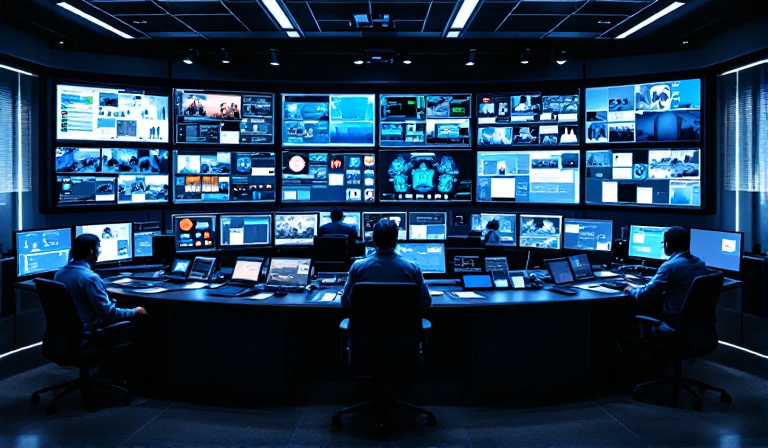
In today's digital age, security systems have become an integral part of our lives, protecting everything from personal data to national infrastructures. These systems often work behind the scenes, yet their impact can be profound when they successfully thwart threats or prevent potential disasters. This article delves into some compelling security stories that highlight how systems have made a real difference, offering insights and practical advice along the way.
The Unsung Heroes of Cybersecurity
Cybersecurity systems are often described as the unsung heroes of the digital world. While they might not be visible to the average user, their presence is crucial in maintaining the safety and integrity of digital data. Consider the case of a major financial institution that managed to prevent a massive data breach thanks to its robust cybersecurity measures.
This financial institution had invested heavily in a multi-layered security system designed to detect unusual activities and respond swiftly to potential threats. One day, the system flagged a series of unauthorized access attempts from foreign IP addresses. Thanks to the real-time monitoring and quick response protocols in place, the IT team was able to isolate the threat and secure sensitive customer data before any breach occurred.
This story underscores the importance of having proactive cybersecurity measures. Investing in advanced security systems, regularly updating software, and conducting routine security audits can make a significant difference in safeguarding digital assets.
Physical Security Systems: Beyond Locks and Keys
Physical security systems have also shown their prowess in protecting valuables and ensuring safety. A notable instance involved a museum that successfully thwarted an attempted art heist with the help of its comprehensive security system.
The museum had installed an advanced surveillance system equipped with motion detectors and real-time video analytics. During a late-night attempt to steal valuable artifacts, the system detected unusual movements and immediately alerted the security personnel. The quick response, aided by live video feeds, allowed security staff to apprehend the intruders before they could escape with any art pieces.
This example highlights the effectiveness of integrating modern technology into physical security measures. Installing high-quality surveillance cameras, employing motion sensors, and ensuring a rapid response protocol can significantly enhance the security of physical spaces.
Personal Security: Protecting Individuals
While organizational and physical security systems are vital, personal security systems are equally important for individuals. Consider the story of a young woman who narrowly avoided a dangerous situation thanks to a personal security app on her smartphone.
Walking home late one evening, she noticed someone following her. Using a personal safety app, she quickly sent her location and a distress signal to a pre-selected list of friends and family. The app also provided a direct line to local authorities. Her quick thinking and the app's capabilities ensured she received help promptly, and the potential threat was averted.
This illustrates the value of personal security technology. Individuals can enhance their safety by utilizing apps that offer real-time location tracking, emergency contacts, and direct access to emergency services. Staying informed about the latest personal security tools and regularly updating them can be a lifesaver.
Practical Advice for Enhancing Security
Drawing lessons from these stories, here are some practical steps you can take to improve security in various aspects of life:
- Regular Updates and Maintenance: Ensure all security systems, whether digital or physical, are regularly updated and maintained. This includes software updates, hardware checks, and system audits.
- Layered Security Approach: Embrace a multi-layered security strategy. In cybersecurity, for example, this might involve firewalls, encryption, and multi-factor authentication working in tandem.
- Employee and Personal Training: Educate employees and individuals on recognizing and responding to security threats. Regular training sessions can empower people to act appropriately during emergencies.
- Use of Technology: Leverage modern technology effectively. This could be through the use of advanced surveillance systems, personal safety apps, or smart home security devices.
- Quick Response Protocols: Develop and practice quick response protocols. Knowing how to act swiftly in the event of a security breach or threat can prevent escalation.
Conclusion: The Power of Preparedness
The stories shared here highlight the critical role security systems play in our daily lives. Whether preventing a data breach, stopping a theft, or ensuring personal safety, these systems provide peace of mind and protection. By investing in robust security systems and staying informed about potential threats, individuals and organizations can significantly reduce risks and enhance safety. Remember, the key to effective security lies in preparedness, vigilance, and continuous improvement.

